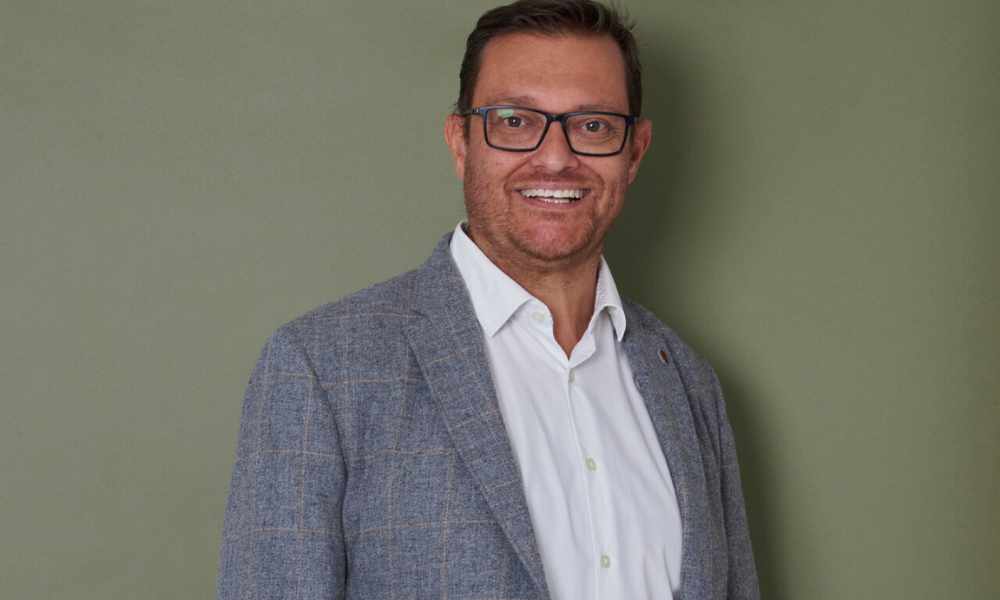Adviser turned his back on corporate world to support clients' financial needs

Tim Spencer (pictured), broker and managing director of Optimus Mortgages, turned his back on corporate banking where, he suggests, there was more emphasis on selling rather than advising - before making a move into the mortgage world.
“I'm not a salesman by any stretch of the imagination,” Spencer explained. “I'm not one of those who can sell ice to Eskimos or anything like that. My job is to advise. I've worked at major banks where it was a lot more targeted. That's why I stepped out of the corporate world to do it myself because I was fed up of targets and a man over my shoulder, asking what I was going to sell to the next client. It's not the way to do it.”
Spencer’s motivation for joining the financial services market two decades ago was not a financial one, he insists. “It wasn’t about earning lots of money, it was about trying to help people,” he said. ”I'm not here to make millions of pounds or stitch anyone up or anything like that. That's not what it's about. It's to help people, and make enough money to survive.”
Prior to his time in banking, Spencer seemed set to become a primary school teacher – a good fit, perhaps for his altruistic tendencies. But despite completing his Bachelor of Education degree, he steered away from a life in the classroom. “I've got a lot of friends who are teachers,” he said. “I've got a lot of respect for them because I can't do what they do - it just wasn't for me.” A stint as an assistant manager at a nightclub followed, and then a job in the betting industry, but Spencer’s desire for a ‘proper job’ took him into financial services and then that bank role, that proved to be the straw that broke the camel’s back.
Walking away from that position, he became a pub landlord for eighteen months. “I loved it, but had to give it up because a week after my daughter was born, I was diagnosed with kidney disease and I had to have a transplant,” he recalled. “I was on dialysis for a while. Running a pub and trying to do dialysis at the same time just didn’t work.”
Recovered from the surgery, Spencer finally turned his attention to the profession that would help him carve out a successful business – mortgage broking. He studied for his industry qualification and worked as an inhouse adviser for an estate agency chain, before eventually deciding to go it alone. “I just thought, ‘Why am I paying someone, X amount of my proc fee and X amount each month for the benefit? I could do this myself’,” he said, “and that's why I went directly authorised.”
READ MORE: Bridging valuation 'took six weeks', complains broker
Setting up in business

Optimus Mortgages was born in 2016 – an independent service, based in Durham. Spencer specialises in later life lending, but can offer whole-of-market advice across a breath of mortgage products, with the hope that first-time buyers will stay with him beyond their initial property purchase. “Financial education in the country is appalling,” he said. “I think this needs addressing immediately. There should be some sort of government initiative, with people like me going into schools and talking to kids about it. It shouldn't be teachers - they've got enough on their plate. I’m looking at getting involved in things like this because I think it's vitally important. The more educated we are as a society, the better a society we are.”
That lack of financial knowledge extends to older generations too, in Spencer’s view. “I still think people just are not aware of what products and services are out there for once you get past 55 - that's not great and certainly needs to change.”
What, then, would be Spencer’s tip for other brokers about building a business, and a loyal client base? “It's more expensive to get new clients than it is to retain them,” he said. “Most of my business comes from referrals from previous clients. I've actually retained clients from different roles with different organisations, and I'm now getting parents referring their children. I don't need hundreds and hundreds of clients. I'd rather keep it small and select, deal with people I want to deal with, and then look after them on an ongoing basis.”
He added: “Your best clients are the ones who have been referred from other people and looking after them, and doing the best job you possibly can for them, before asking for referrals. I think that's really the best way of developing a business - to be genuine, be yourself and look after people.”



